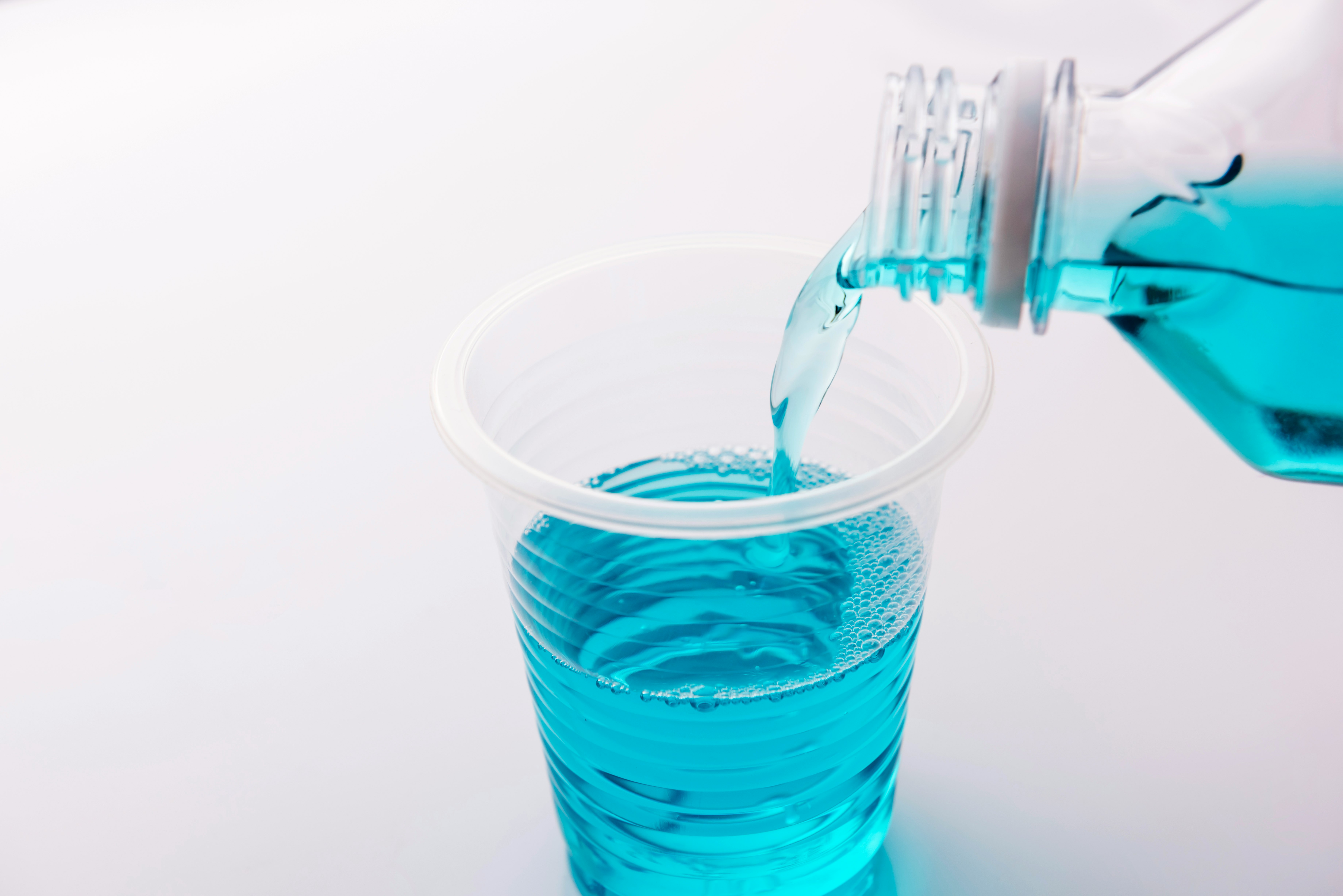
Mouthwash is a part of many people’s hygiene routine. The rinse is supposed to reduce the potentially dangerous microbes in the mouth. But according to a recent study, it’s possible that certain mouthwashes, specifically those that contain alcohol, could lead to even more health problems.
In a study published in the Journal of Medical Microbiology, a group of researchers at the Institute of Tropical Medicine (ITM) in Antwerp, Belgium assessed daily use of Listerine Cool Mint mouthwash.
The study was part of a larger study, the Preventing Resistance in Gonorrhoea trial, and all the participants were men who have sex with men (MSM) taking HIV pre-exposure prophylaxis (PrEP). The men either used the Listerine every day for three months, followed by a non-alcohol mouthwash or vice versa. The rinse, like many other mouthwashes, contains alcohol — which is responsible for the brief burning sensation many feel when taking it, but also important for destroying bacteria.
The researchers found there was a significant difference in the oral microbiome between those who used the alcohol-based mouthwash and a normal mouthwash. Two species of bacteria, Fusobacterium nucleatum and Streptococcus anginosus, were especially abundant after Listerine administration.
The increased population of oral bacteria is potentially problematic because both of these bacteria have been previously linked to several diseases. Researchers advise that the regular use of alcohol-based mouthwashes should be carefully considered.
“Alcohol-based mouthwashes are widely available,” Dr Joleine Laumen, one of the authors and researcher at ITM’s Unit of Sexually Transmitted Infections, said in a press release. “The public may use them daily to tackle bad breath or prevent periodontitis, but they should be aware of the potential implications. Ideally, long-term usage should be guided by healthcare professionals.”
Notably, the study was only conducted with a limited sample, and only men who have sex with men. Additionally, researchers did not assess the participant’s smoking or drinking habits — both behaviors that could influence the oral microbiome.
Further research is needed to determine if the finding holds true across populations. And while mouth mouthwashes do contain alcohol, there are other options available that affect the bacteria balance differently, and could be a safe alternative.







